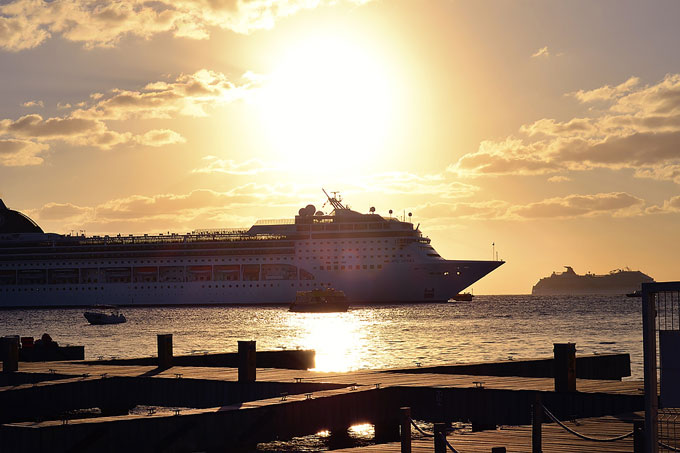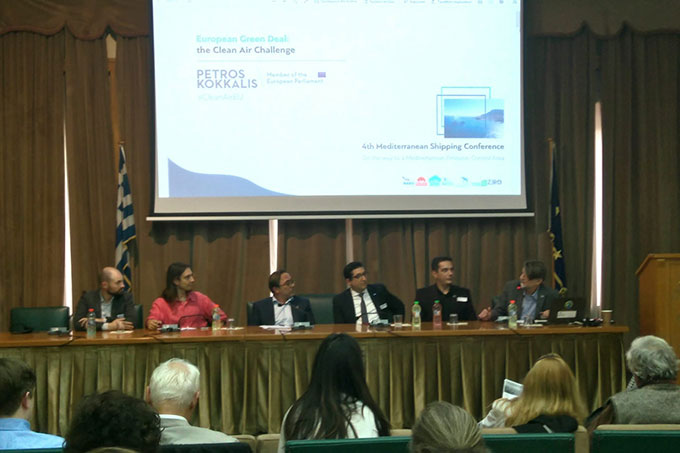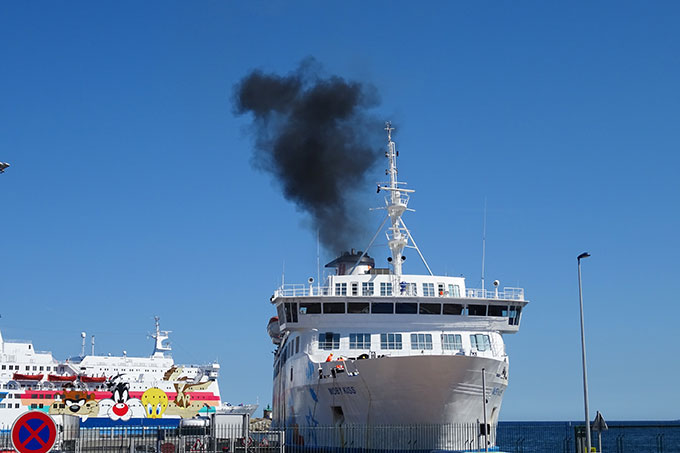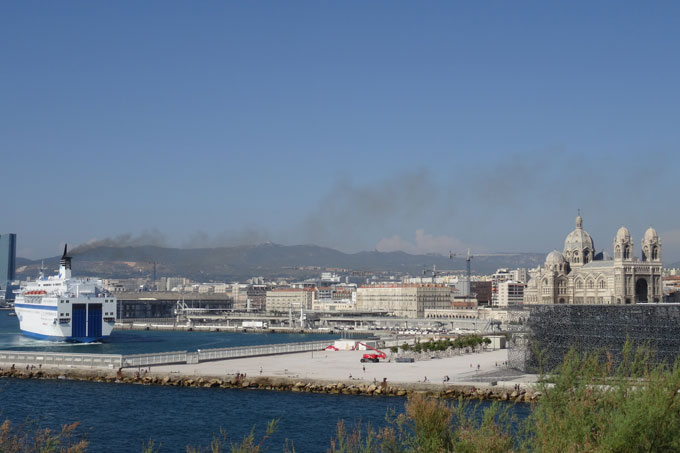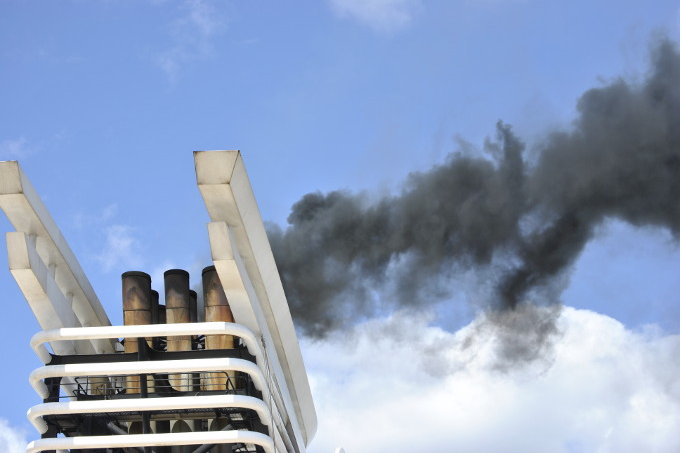An Emission Control Area for the Mediterranean Sea
The MedECA NGO network against air pollution from ships
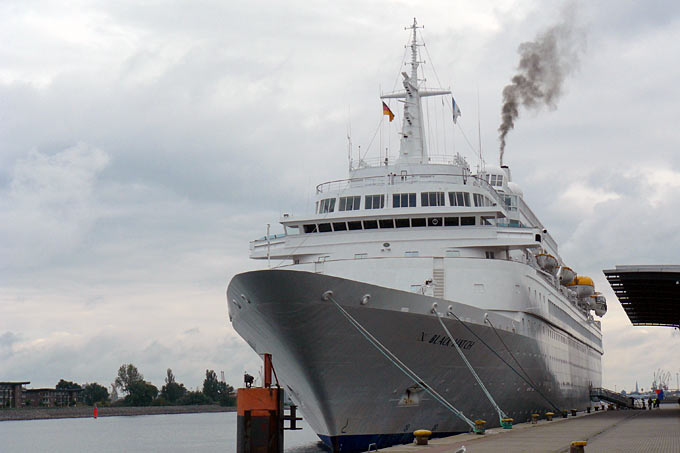
Kreuzfahrtschiff - Foto: Thomas Lauch
In the Mediterranean region, inhabited by around 250 million residents, emissions from ships contribute substantially to ambient emission levels. The World Health Organization (WHO) warns that annual mean levels in the region are often exceeding its air quality guidelines by more than five times. Furthermore, around 70 percent of the cities in the Mediterranean littoral states are way above the WHO recommendation for PM2,5 pollution levels.
High ambient concentrations of PM2.5 due to ship emissions are perfectly corresponding with major shipping routes and affect coastal areas, where many of the most densely populated cities of the Mediterranean region are located. Globally 60,000 premature deaths are associated with air pollution from ships and in the EU alone pollution from ships cause around 60 billion EUR in health costs per year.
Several studies have been published e.g. by IIASA (2018), INERIS (2019) and REMPEC (2019) which show that the designation of the Mediterranean Sea as an emission control area for SOx (SECA) and NOx (NECA) would reduce SOx, NOx and PM2.5 emissions significantly: Sulphur oxides would be reduced by 95 percent, PM2.5 emissions by 11 percent if the region was declared a SECA. Harmful nitrogen emissions would decrease by up to 70 percent if the Mediterranean Sea would also be declared a NECA. By 2050 10,000 premature deaths could be avoided annually. The expected health benefits outweigh the costs of such a measure by the factor 4.4. But the full effect on health and socioeconomics will only be achieved if the Mediterranean Sea is declared an emission control area for both SOx and NOx.
In December 2021, the contracting parties of the Barcelona Convention agreed to designate the Mediterranean Sea as an Emission Control Area for Sulphur emissions, MedECA. The littoral countries agreed to go the final step to apply for a SECA covering the whole Mediterranean Sea at the respective International Maritime Organisation (IMO) meeting in 2022. Following the routines of decision making at the IMO, the MedECA shall be in force in January 2025.
A regulation on harmful nitrogen emissions from ships will not be included in the submission to the IMO but the countries agreed to work on NOx emissions in the next two years to hopefully bring forward a NECA, too.
To safeguard the designation of the Mediterranean Sea as a MedECA, NABU is working together with its partners in the region:
- Spain (Ecologistas en Acción)
- France (Institut Mobilités en Transition)
- Italy (Cittadini per l’aria & We are here Venice)
- Greece (Hellas Ornithological Society)
- Malta (Birdlife Malta)
- Portugal (Zero)
This alliance adopted a "Declaration to designate the Mediterranean Sea an Emission Control Area to limit air pollution from ships" as its mission statement in Rome, March 2017.
More Information
The call for a Mediterranean Emission Control Area (MedECA) got backed by MEPs and numerous activists from local groups across Europe. more →
Shipping is a big contributor to air pollution that has harmful impacts on human health, environment and climate. For many coastal areas and port cities ships are the major source of air pollution. However, in comparison to road transport, few actions have been put into place in order to effectively reduce shipping pollutants emissions. more →
Shipping is a major contributor to air pollution that has impacts on human health, environment and climate. Thanks to the creation of Sulphur Emission Control Areas (SECA) in the North and the Baltic Sea, air quality got significantly better in this area. Therefore, effective means to reduce air pollution from ships in the Mediterranean Sea such as an ECA should be established likewise. more →
Shipping is a contributor to air pollution that has impacts on human health, environment and climate. For coastal areas and port cities ships are the major source of air pollution. However, in comparison to road transport, few actions have been put into place in order to effectively reduce shipping pollutants emissions. more →
When will Mediterranean countries start to take action in order to protect their citizens, the environment and their cultural heritage from air pollution? Who has to start to take action and where? We would discussed this issue with key stakeholders such as national governments, EU bodies, industry stakeholders, leading scientists, ports and NGOs. more →

